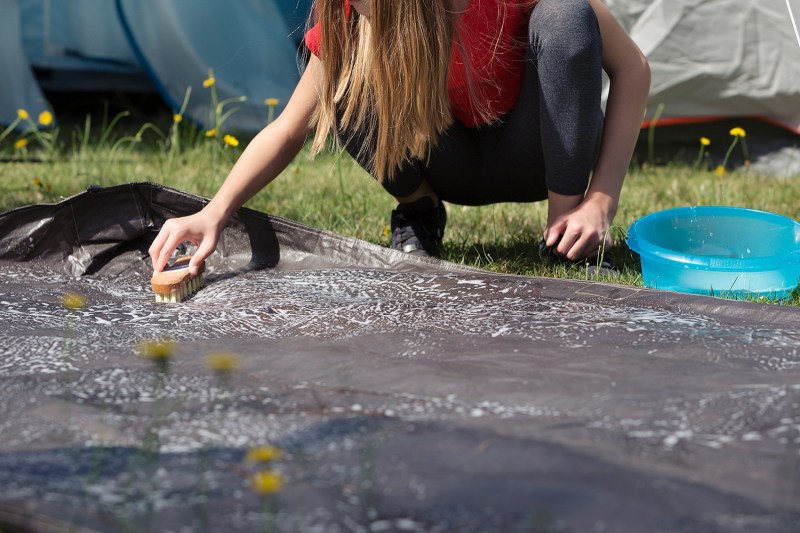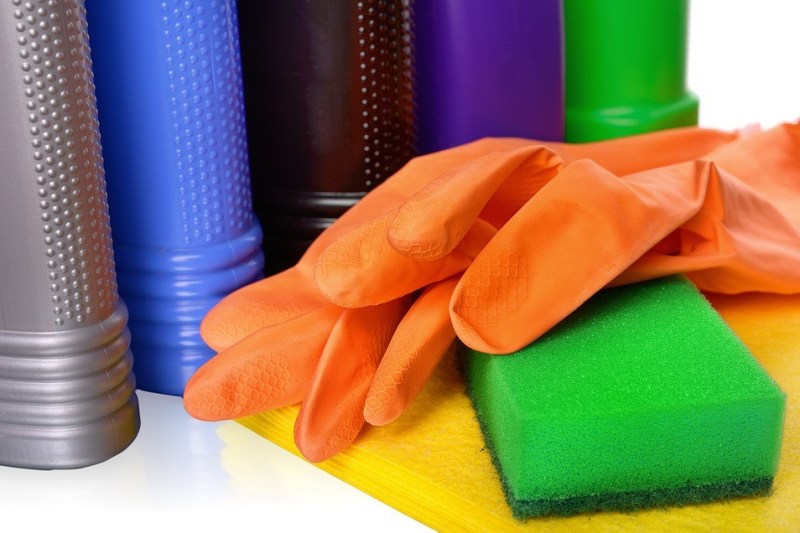Sometimes, adventures get messy, and even the toughest gear needs a little freshening up. Camping tents, in particular, spend quite a bit of time in grassy areas, which means they're often stained, soiled, and super dirty. Cleaning the grit and grime that gathers on your tent will extend both the longevity and weather-resistance of your outdoor abode, and in this guide, we'll show you exactly how to do so. The last thing you want is to jeopardize the quality of your best tent, and, in general, it's always better to begin a backcountry adventure with a clean tent. So let's talk about how to thoroughly clean your camping tent, which products to use, and how often to get your scrubbing gloves on.
Things You’ll Need to Deep Clean Your Tent
Before the cleaning process begins, you'll need a few products to remove all the dirt and grime. Here are some of our recommendations:
- Cleaning Products: When it comes to cleaning products, stay away from harsh household cleaners and detergents that could damage your tent's lining or synthetic waterproofing, and instead, opt for mild soaps and naturally derived cleaners. These include gentle dish soaps, vegetable-based castile soap, or cleaners designed specifically for tents and other outdoor gear. Try using Jumper Cleaner's Concentrated Cleaner, Grangers Tent + Gear Cleaner, or Gear Aid Revivex Pro Cleaner Wash.
- Sponges, Washcloth, and a Toothbrush: To scrub down your tent, avoid bristle brushes and opt for a soft cloth or sponge. Cleaning products that are too abrasive could damage your tent’s weatherproofing. And to remove grit out of tent zippers, try using a soft toothbrush.
- A Large Utility Sink or Washbasin: Even the gentlest cycle on a washing machine can potentially damage tent material, so use a bathtub, utility sink, or large basin to soak and wash your tent.

How to Clean Your Tent
Step 1: Tackle Any Problem Areas First
Your first step is to identify any problem areas, such as sticky sap stains, stubborn splotches of mud, or mildew. Use a cleaner designed for tents or outdoor gear, and scrub problem areas with a sponge or cloth. For mildew stains, try naturally derived enzyme cleaners, such as Earthworm Mold Stain & Mildew Stain Treatment.

Step 2: Soak and Rinse Your Tent
To wash your tent, fill a large sink or tub with lukewarm water and add your chosen cleaning agent, such as dish soap or castile soap. Turn your tent inside-out before submerging it into the water, which will make it easier to clean difficult places like interior mesh storage pockets (these also collect lots of dirt and debris). Soak your tent for a few minutes, then use your hands to gently remove caked-in dirt and grime, similar to a gentle machine washing cycle.
Step 3: Don’t Forget about Tent Poles and Zippers
Tent poles get dirty as well, especially after beach campouts or nights spent in dusty areas. The accumulation of dirt, sand, and salty sea air, can damage tent poles over time if left unclean. So show them some love with a quick wipe down using a sudsy cloth or sponge. For tent zippers, use a damp toothbrush to gently sweep the teeth and sliders of the zipper, which will help to remove any potentially damaging grains of dirt or sand.
Step 4: Be Sure to Fully Dry Your Tent
After your camping tent is squeaky clean, let it fully dry before folding it up and repacking it. If you'll be hanging your tent to dry, be sure it doesn't come into contact with any sharp or abrasive surfaces that could accidentally damage the tent’s material.
How Often Should You Clean Your Tent?
If your trip is short and your tent's not too dirty, it's perfectly fine to pack it away for the next adventure. But if your recent campout was especially dirty or messy, it's worth taking the time to deep clean your tent to remove any potentially damaging natural substances, such as tree sap or bird poo. And remember, never use a washing machine or dryer to clean or dry your tent.




